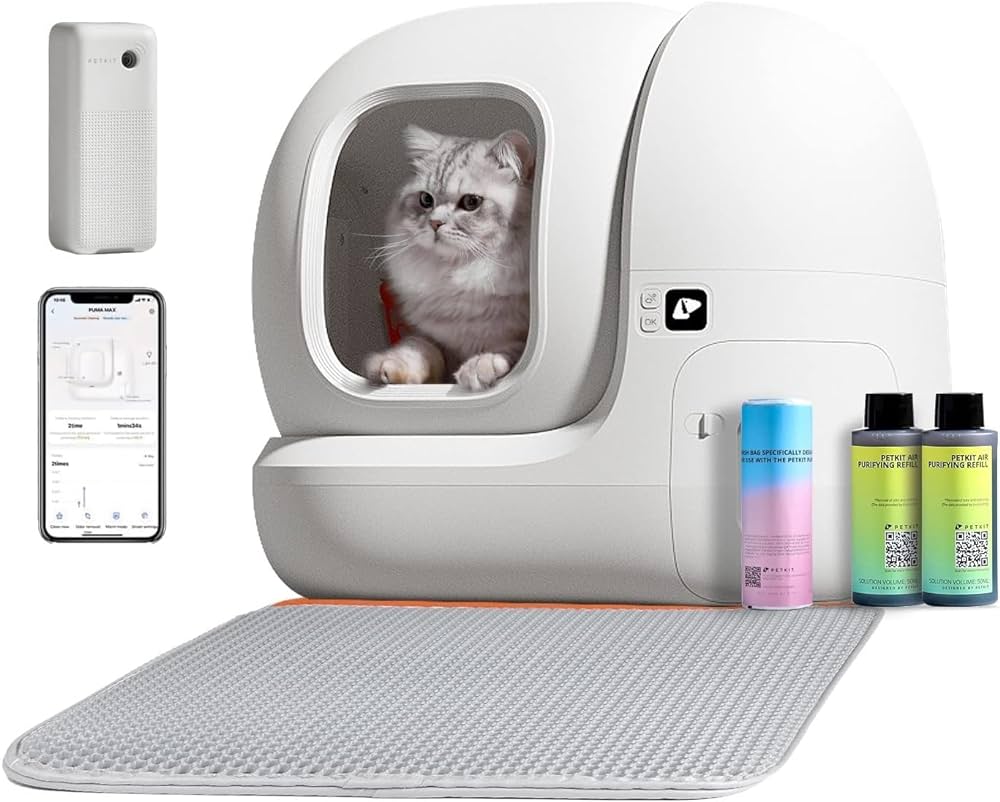
Restoring Harmony and Preventing Recurrence
By understanding the reasons behind cat spraying in the litter box and implementing effective strategies, you can help your feline friend feel more secure, reduce stress, and eliminate the unwanted behavior. Remember, patience, consistency, and a positive approach are key to restoring harmony in your household and fostering a strong bond with your furry companion.
Additional Tips for Preventing Cat Spraying
Here are some additional tips to help prevent cat spraying in the litter box:
-
Maintain a Clean Home: Keep your home clean and free of clutter, as cluttered environments can increase a cat’s stress levels.
-
Provide Enrichment Activities: Engage your cat in playtime, interactive games, and puzzle toys to help relieve boredom and stress.
-
Use Positive Reinforcement: Reward your cat with treats or praise when they use the litter box appropriately.
-
Create a Predictable Routine: Maintain a consistent routine for feeding, playtime, and litter box cleaning to provide your cat with a sense of security.
-
Seek Professional Help Early: If spraying is causing significant stress or damage in your home, don’t hesitate to seek professional help from a certified animal behaviorist or veterinarian.
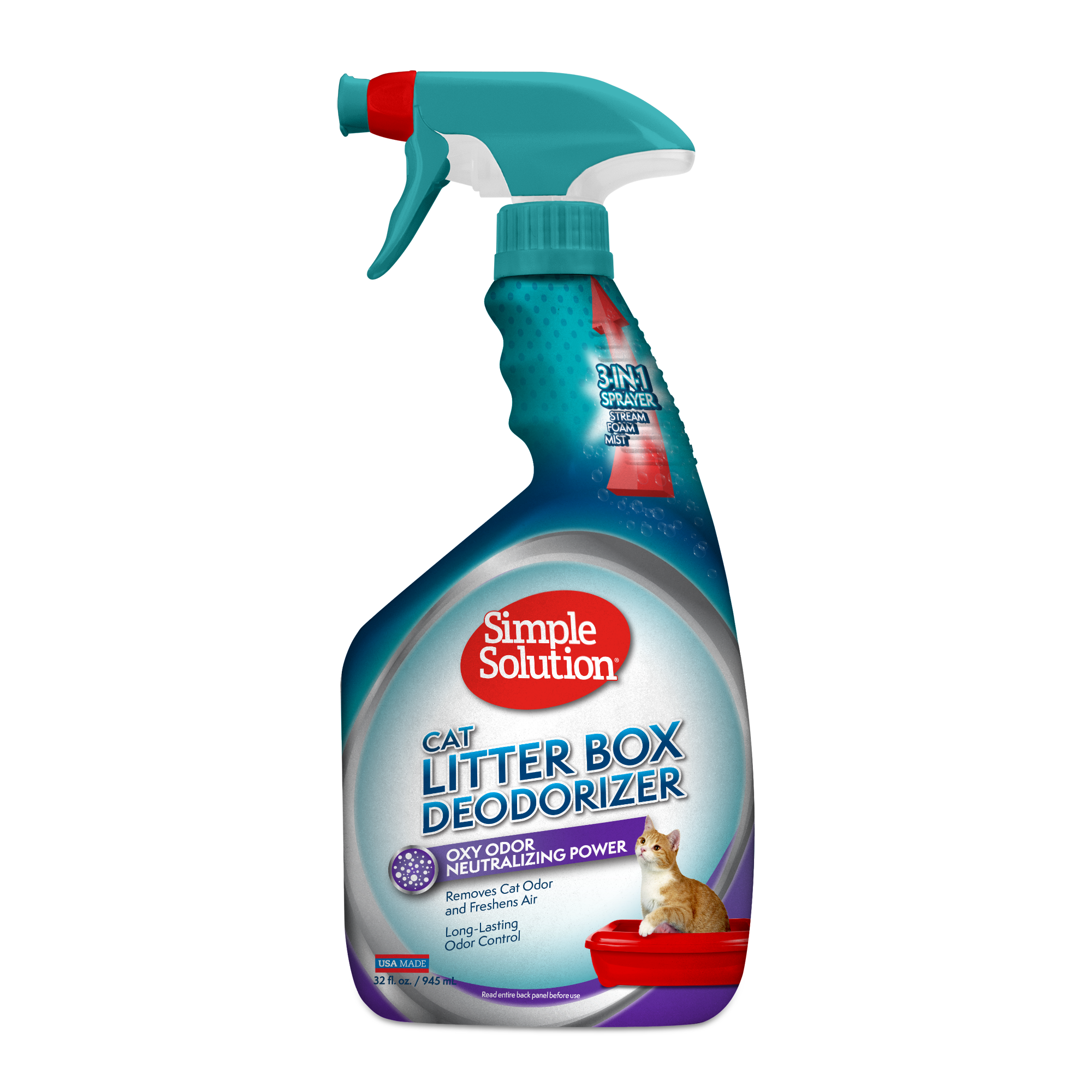
Understanding and Appreciating Feline Behavior
Cat spraying, while often frustrating for pet owners, is a normal feline behavior that serves a specific purpose in their communication and social dynamics. By understanding the reasons behind spraying and implementing effective strategies, you can help your cat feel more secure, reduce stress, and eliminate the unwanted behavior. Remember, cats are complex creatures with unique personalities and needs. By taking the time to understand their behavior and providing them with a supportive and enriching environment, you can foster a strong bond with your feline friend and enjoy a harmonious relationship.
Disclaimer
Please note that this blog post is intended for informational purposes only and should not be considered a substitute for professional veterinary advice. If you are concerned about your cat’s spraying behavior, please consult with a veterinarian or certified animal behaviorist for personalized guidance and support.
Dealing with the Aftermath: Cleaning Up Cat Spray
Cat spraying can leave behind a strong and unpleasant odor. Here’s how to effectively clean up after your cat sprays in the litter box, or anywhere else in your home:
-
Act Quickly: The sooner you address the sprayed area, the easier it will be to remove the odor completely.
-
Identify the Sprayed Area: Use a blacklight to locate areas where your cat may have sprayed, as urine stains often become invisible under regular light.
-
Remove Excess Urine: Blot up as much excess urine as possible using absorbent paper towels or clean cloths. Wear gloves to protect yourself from bacteria and avoid spreading the odor.
-
Neutralize the Odor: Choose an enzymatic cleaner specifically designed for pet odors. Enzymatic cleaners contain bacteria that break down the organic components of urine, eliminating the odor at its source. Avoid using harsh chemicals or ammonia-based cleaners, as these can actually attract cats back to the area to spray again.
-
Thorough Cleaning: Once you’ve neutralized the odor, clean the affected area with a solution of warm water and dish soap. Rinse the area thoroughly and allow it to dry completely before allowing your cat back in the space.
-
Cleaning the Litter Box: Wash the litter box with warm water and dish soap. Consider replacing the litter box entirely if the odor persists.
Addressing Underlying Medical Issues
While spraying is a normal feline behavior, it can sometimes indicate an underlying medical condition. Here’s why it’s important to schedule a veterinary checkup if your cat is spraying:
-
Ruling Out Medical Causes: Medical conditions such as urinary tract infections, bladder stones, diabetes, or kidney disease can all contribute to spraying. A veterinary checkup can help identify and address any underlying health problems.
-
Early Detection and Treatment: Early detection and treatment of medical conditions can improve your cat’s overall health and well-being, and potentially resolve the spraying behavior.
-
Veterinary Recommendations: Your veterinarian can provide personalized recommendations for addressing spraying, including dietary changes, medication, or pain management strategies if necessary.
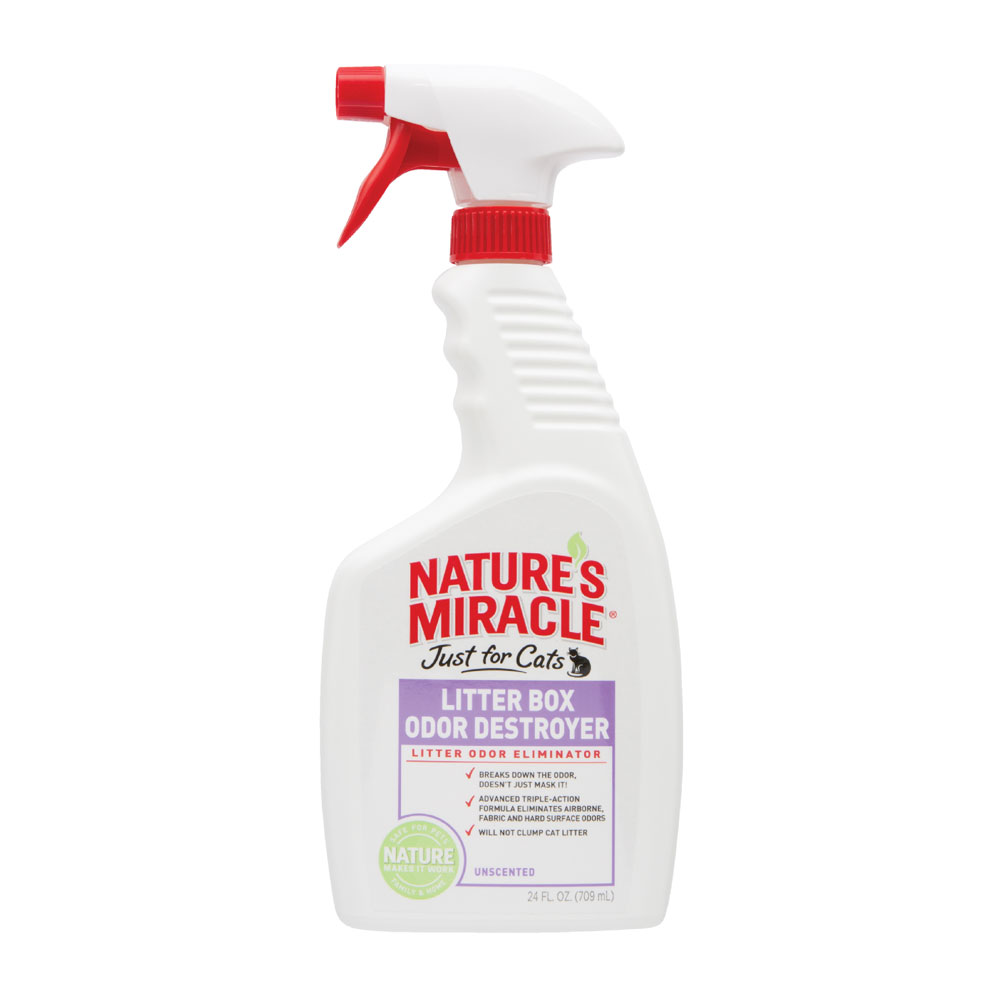
Creating a Cat-Friendly Environment
Cats are sensitive creatures who thrive in a stress-free environment. Here are some ways to create a cat-friendly environment that can help reduce spraying behavior:
-
Multiple Litter Boxes: Provide your cat with multiple clean litter boxes in different locations throughout your home. This gives them options and reduces competition, especially in multi-cat households.
-
Spacious Litter Boxes: Choose litter boxes that are large enough for your cat to comfortably turn around and eliminate freely. Avoid covered litter boxes if your cat finds them claustrophobic.
-
High-Quality Litter: Use a type of litter that your cat finds appealing. Experiment with different textures and then clumping formulas to find the one your cat prefers.
-
Regular Cleaning: Maintain a consistent cleaning routine for the litter box. Scoop waste daily and completely change the litter every week or more often, depending on the number of cats in your household.
-
Vertical Territory: Provide your cat with ample vertical scratching posts to help them mark their territory in a positive way and reduce the need to spray.
By following these tips and creating a cat-friendly environment, you can help your feline friend feel more secure and content, ultimately reducing the likelihood of spraying behavior.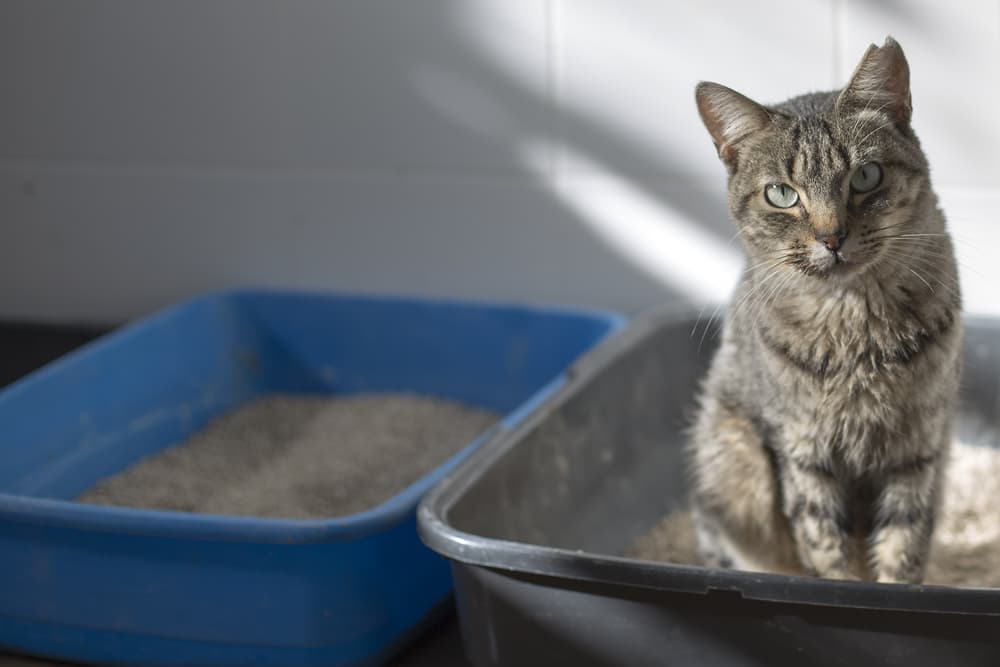
Feliway and Other Calming Aids: Promoting Relaxation in Your Cat
Cat spraying can often be triggered by stress and anxiety. Here’s how Feliway and other calming aids can help promote relaxation in your cat and potentially reduce spraying behavior:
-
Feliway Diffusers: Feliway diffusers release synthetic feline pheromones that mimic calming facial pheromones produced by cats. These pheromones create a sense of security and familiarity for cats, then potentially reducing stress and anxiety associated with spraying.
-
Feliway Sprays: Feliway spray can be applied directly to bedding, then scratching posts, or carrier interiors to create a calming zone for your cat in specific locations.
-
Catnip Toys: While not all cats react to catnip, for those that do, it can have a calming and playful effect. Providing catnip toys can encourage positive outlets for your cat’s energy and reduce stress.
-
Music Therapy: Studies suggest that classical music or nature sounds can then have a calming effect on cats. Consider playing calming music in the background to create a more relaxed environment.
-
Herbal Remedies: Certain herbal remedies, like chamomile or valerian root, may have calming properties for cats. However, it’s crucial to consult with your veterinarian before introducing any herbal remedies to your cat’s routine.
It’s important to note that calming aids may not work for all cats, and their effectiveness can vary depending on the individual cat and the severity of the stressor. However, incorporating these strategies alongside other environmental changes and addressing any underlying medical issues can create a more holistic approach to reducing spraying behavior.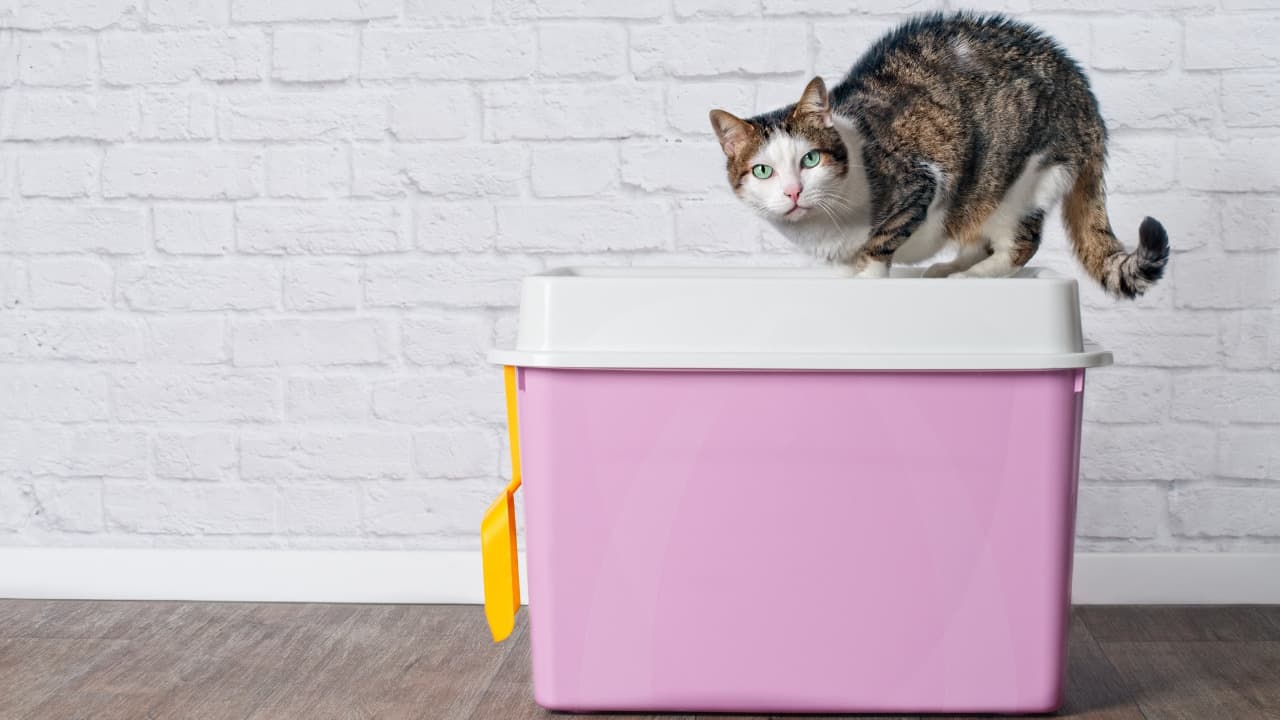
Conclusion: A Journey of Understanding and Harmony
Living with a cat can be a rewarding experience filled with companionship, love, and playful moments. However, cat spraying can introduce challenges and frustration for pet owners. By understanding the reasons behind this behavior, implementing effective strategies, and then creating a supportive environment, you can address spraying and foster a harmonious relationship with your feline friend. Remember, patience, consistency, and a positive approach are key to creating a happy and healthy home for both you and your cat.
